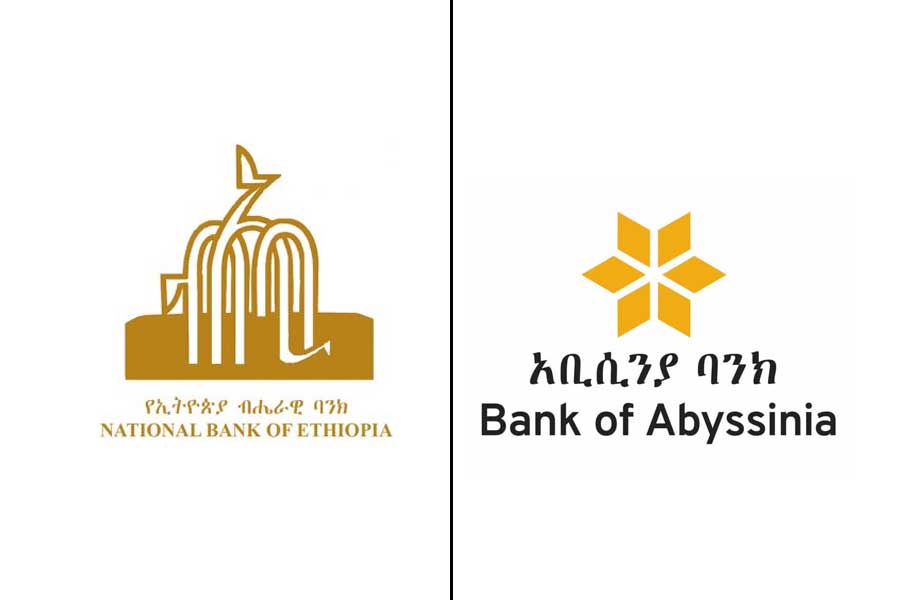
Addis Credit & Saving Institution (ACSI) has faced a hiccup in its plans to re-establish itself as a commercial bank after regulators at the national bank instructed them to change the proposed moniker 'Bank of Addis' to avoid confusion with a bank already in business.
The National Bank of Ethiopia (NBE) contends the name proposed by the microfinance institution (MFI) is similar to that of Addis International Bank, one of the third-generation banks incorporated in 2011. The executives of Addis Credit are preparing to table suggestions for a new name to their board of directors and shareholders.
“The instruction is to avoid confusion among banks and their customers,” said Frezer Ayalew, director of banking supervision at the NBE.
The central bank has also ordered executives of ACSI to comply with a directive issued two years ago, restricting regional states not to hold more than 70pc of shares in microfinance institutions aspiring to evolve into commercial banks.
Incorporated in 1996, Addis Credit & Saving is owned by the Addis Abeba City Administration and 10 other shareholders. It is one of the 41 microfinance firms operating in the country with 52.4 billion Br in aggregate deposits last year, recording a 17.2pc increase from the previous year. Eleven of these are public-owned, including Addis Credit. The Institute plans to shed off its significant shareholders by increasing equity holders to 25, according to Damtew Alemayehu, managing director of ACSI.
“We'll adjust after the board of directors passes the decision,” he told Fortune. “We're hoping the permit from the National Bank will be granted in the next three months.”
The Institute had initially applied for permission to operate as a commercial bank last September, a month before the deadline for banks to raise half a billion Birr in paid-up capital. Last April, the NBE raised the minimum threshold capital to five billion Birr, granting banks under formation a six-month window to comply with the requirement.
ZamZam and Hijra, both interest-free banks, and Goh Betoch Bank, a mortgage bank, along with Gadaa and Ramis banks, managed to meet the cutoff before the deadline. Over a dozen others under formation failed, now expected to raise the full five billion Birr to enter the lucrative industry. When ACSI handed in its application, its paid-up capital reached 2.4 billion Br, which has doubled since. It is an achievement that puts it along with the largest microfinance institutions in the country, such as the Amhara, Oromia and Omo microfinance firms.
The Oromia Credit & Saving Institution, now Siinqee Bank, has mobilised seven billion Birr in paid-up capital, putting it on an even footing with first-generation private banks like Awash Bank. Oromia Credit serves 700,000 customers. Amhara Credit & Saving Institution also plans to enter the commercial banking industry with over 3.8 billion Br in equity under Tseday Bank.
Unlike newly-formed banks, microfinance institutions with more than half a billion Birr in paid-up capital are assigned two years to comply with requirements set by the national bank, including the new capital threshold.
The executives of Addis Credit say raising five billion Birr in equity should not be as monumental a task as it may seem.
“All we have to do is to recapitalise our profits,” said Damtew.
In the last seven months, ACSI registered 505 million Br in profits, 41pc higher than the same period last year. Its total assets reached 8.7 billion Br. The Institute submitted an action plan seven months ago, outlining how it intends to fulfil the regulatory bank's requirements. Among these is installing a centralised, online, real-time, electronic (CORE) banking system. The system allows the integration of currency management, securities, payments and settlement.
At the end of last year, ACSI signed an agreement with Temenos AG to procure software dubbed Temenos T24 at the cost of 30 million Br. It has thus far managed to connect 40 of its 142 branches. The supplier is conducting training for the staff, according to Damtew.
“It'll be installed at all branches in the coming months," he said.
Eight of its branches are in the Oromia Special Zone in the outskirts of Addis Abeba.
Based in Geneva, Switzerland, Temenos AG has supplied CORE banking solutions to Nib Bank, the Cooperative Bank of Oromia and the Bank of Abyssinia. Siinqee Bank has opted to sign up for the Flexcube banking system from Oracle FS, an American software firm.
Others joining the industry have finalised acquiring CORE banking systems. ZamZam Bank was the first to introduce a Shariah-compliant core banking solution when it bought software from Oracle last year. In August last year, Hijra Bank selected Egyptian-based Path Solutions to supply and install its banking platform. Goh Betoch Bank chose Temenos the same month.
At the end of last year, Addis Credit & Saving, serving 440,000 customers, joined EthSwitch, the national switch operator, along with Rays Microfinance and Oromia Credit & Saving. The move enables the customers of the financial institutions to complete transactions with EthSwitch's member banks.
Despite embracing technology, the road ahead will be all but smooth for microfinance institutions that aspire to become commercial banks, says Dawit Tadesse, an assistant professor who specialises in finance and economics and the managing partner of Lead Plus Management.
"On top of catching up with entrenched commercial banks, these institutions need to come up with unique and innovative products and services to compete," he said.
Microfinance institutions are expected to continue carrying out their regular services even after becoming full-fledged commercial banks, a requirement that does not apply to others in the industry.
PUBLISHED ON
Mar 05,2022 [ VOL
22 , NO
1140]

Fortune News | Aug 02,2025

Radar | Sep 27,2020

Agenda | Jun 11,2022

Fortune News | Nov 09,2019

Radar | May 08,2021

Addis Fortune Press Release | Oct 04,2024

Fortune News | Mar 28,2020

Editorial | Mar 30,2024

Radar | Oct 05,2025

Fortune News | Mar 12,2022

Dec 22 , 2024 . By TIZITA SHEWAFERAW
Charged with transforming colossal state-owned enterprises into modern and competitiv...

Aug 18 , 2024 . By AKSAH ITALO
Although predictable Yonas Zerihun's job in the ride-hailing service is not immune to...

Jul 28 , 2024 . By TIZITA SHEWAFERAW
Unhabitual, perhaps too many, Samuel Gebreyohannes, 38, used to occasionally enjoy a couple of beers at breakfast. However, he recently swit...

Jul 13 , 2024 . By AKSAH ITALO
Investors who rely on tractors, trucks, and field vehicles for commuting, transporting commodities, and f...

Oct 4 , 2025
Eyob Tekalegn (PhD) had been in the Governor's chair for only weeks when, on Septembe...

Sep 27 , 2025
Four years into an experiment with “shock therapy” in education, the national moo...

Sep 20 , 2025
Getachew Reda's return to the national stage was always going to stir attention. Once...

Sep 13 , 2025
At its launch in Nairobi two years ago, the Africa Climate Summit was billed as the f...